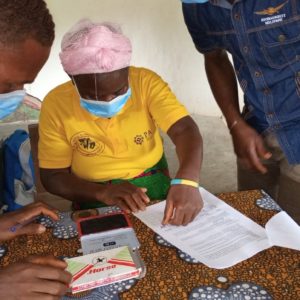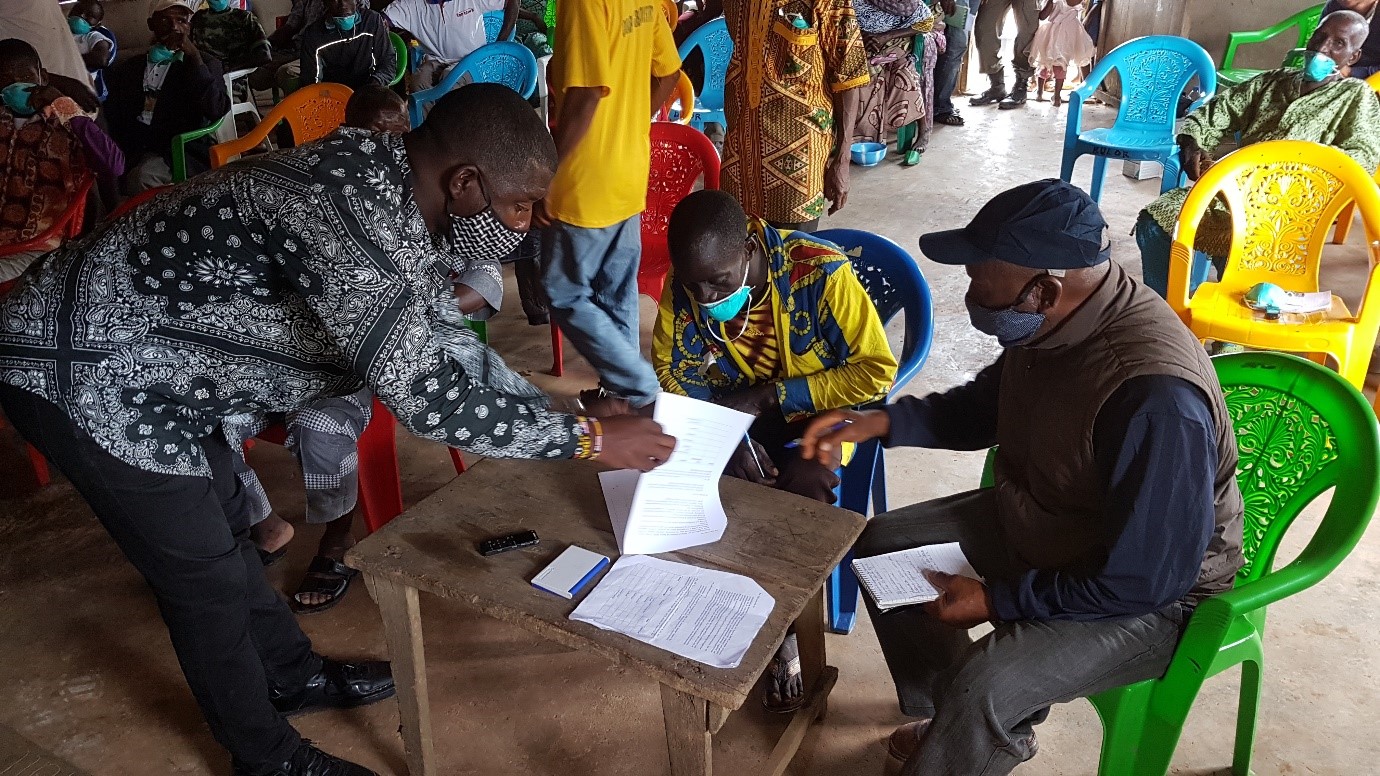PHOTO: Signing in Bulor Town
By Tokpa Tarnue- tarnue82@gmail.com
VOINJAMA, Liberia-The Forestry Development Authority (FDA) in collaboration with the Fauna & Flora International (FFI) and Skills and Agricultural Development Services (SADs) has ended series of consultations in the northwestern Lofa County.
The objective of the consultation is to further solicit support and approval from key stakeholders’ community, district and county levels for the preservation and management of the Wonegizi Proposed Protected Area.
The consultation also seeks to promote community’s right compatible with forest management priorities and the legal policy context in Liberia.
The ongoing consultations according our reporter, is targeting all the thirteen (13) directly affected community situated around the Wonegizi Proposed Protected Area.
The signing of the consent document by the affected communities is said to be a milestone in the fight to conserve the Wonegizi Proposed Protected Area and will be followed by the development of a Co-management plan of the forest.
In collaboration with FFI and SADs, the Liberian government through the FDA is working to conserve the Wonegizi Proposed Protected Area located in Lofa County.
The Wonegizi project is designed to contribute to the implementation of Liberia’s Forest Management Strategy, and to support both the government and communities within and around the Wonegizi Proposed Protected Area to sustainably manage and benefit from this important forest landscape.
Some key activities under the project include facilitating the gazettement co-management of the Wonegizi Proposed Protected Area, building the capacity of local farmers in conservation agriculture practices. This is intended to increase agricultural productivity, providing alternative livelihood support while reducing pressure to clear further forest for agriculture, and preparation for validation and verification of the project as a national and an internationally recognized Multiple Sustainable Use Reserve (MSUR).

Signing in Bomi Hills Town
The transboundary Ziama-Wonegizi-Wologizi (ZWW) Forest Landscape bridging Liberia and Guinea, holds some of the largest remaining forests within the Upper Guinean forest ecosystem, a biodiversity hotspot that is home to more than 25% of Africa’s mammals.
The 116,170 hectare (ha) ‘Massif de Ziama’ Biosphere Reserve in Guinea according to research possesses high levels of species richness and endemism of both fauna and flora, including the critically endangered Western chimpanzee and pangolin. ZWW represents one of the last viable, intact habitats in for forest elephants in West Africa.
Like much of the Upper Guinean forest system, the ZWW landscape has been threatened by forest degradation and habitat loss due primarily to agricultural encroachment and expansion for subsistence farming and, to a lesser extent, commercial activities such as mining. Most subsistence farmers in the landscape utilize traditional slash-and-burn farming techniques. They are also extremely poor, which limits their access to less destructive farming tools and methods or livelihood alternatives outside of farming.
Across the ZWW there are close interactions between people and wildlife increasing the potential for human-wildlife conflict, which results in the loss of crops, food and income for people. To protect hard-earned gains and without access to alternative approaches, farmers often retaliate against intrusive wildlife by injuring or killing these often-endangered animals. In some cases, forest habitat is deliberately destroyed to keep the wild animals at bay.
In addition to human-wildlife conflict, close contact between people and wildlife also occurs through the hunting and consumption of bushmeat for food, which increases the risk of diseases that are transferred from animals to humans.
Support is needed to help secure the long-term benefits that value, conserve and promote both biodiversity conservation and the health and well-being of local people while Park authorities and NGO partners have learned from past successes. They have also learned from failures and are currently working with local communities to test different approaches to conservation that would generate real economic benefits from the landscape.
The community consultations was followed by a district consultation in Konia Town and climaxed with a county level consultation in Voinjama City.

